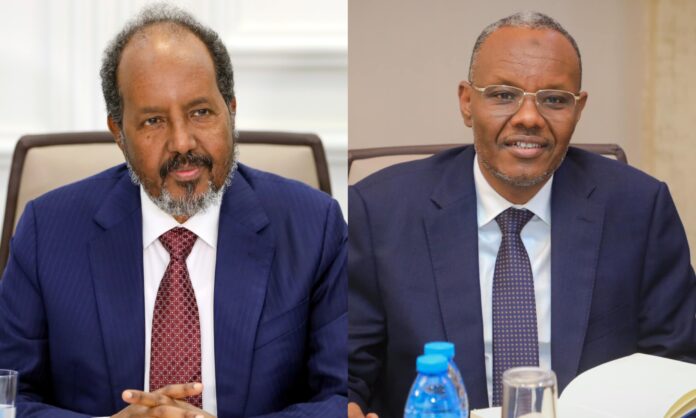MOGADISHU, Somalia — The former Minister of Foreign Affairs of Somalia, Ahmed Isse Awad, has expressed concerns over the growing influence of Ethiopia in Somalia’s internal affairs, exacerbated by recent tensions over the Somaliland Sea access Memorandum of Understanding (MoU).
In a statement that could further inflame regional tensions, Awad revealed that Ethiopia has allegedly entered into secret agreements with the leaders of Somalia’s regional states. This development, he argued, undermines the central government’s authority and poses a significant threat to Somalia’s sovereignty.
Awad’s comments come in the wake of an MoU signed between Ethiopia and Somaliland, which has been vehemently opposed by the Somali government. The agreement, seen by Mogadishu as an infringement on its territorial integrity, allows Ethiopia access to the Red Sea through Somaliland, a region that declared independence from Somalia in 1991 but is not internationally recognized.
“The actions by Ethiopia, including this maritime agreement with Somaliland, are clear violations of our independence,” Awad stated. He highlighted that such moves not only challenge Somalia’s sovereignty but also set a dangerous precedent for regional stability.
The revelation of secret pacts with regional leaders suggests a strategic maneuver by Ethiopia to bypass the central government, potentially fostering division within Somalia. This could lead to further fragmentation and weaken the federal government’s control over its territory.
Ethiopia’s Prime Minister Abiy Ahmed has defended the MoU as a step towards securing his landlocked country’s economic interests, arguing that it does not recognize Somaliland’s sovereignty but merely establishes a strategic partnership.
The situation has drawn international attention, with various stakeholders urging for dialogue to de-escalate tensions. However, Awad’s statements indicate a deepening crisis, where external influences might be exacerbating internal divisions within Somalia.
This development marks a critical juncture for Somalia, potentially reshaping the geopolitical dynamics of the Horn of Africa, where historical grievances and strategic interests often collide.





